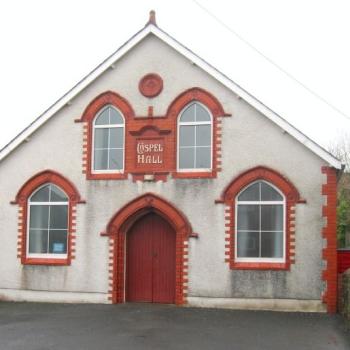Everyone is talking about blasphemy since the murders last week in Paris. Many on every side of the political spectrum are saying that, much as they abhor blasphemy, everyone should have the right to blaspheme. The right to blaspheme is the cornerstone of liberty.
This is the liberal response, and the fact that it has come from every side of the political spectrum shows, once again, that everyone (virtually everyone) is a liberal now. Left and right are locked in an intramural conflict, but they play the same liberal game on the same liberal field.
But the murders and the discussion that has followed also exposes the internal tensions and contradictions of liberalism.
Secular liberalism aims and claims to be beyond the possibility of blasphemy. Blasphemy can only exist where there is a sacred to violate; we are supposed to be beyond blasphemy because we have given up on the sacred.
But of course, we haven’t. We are awash in sacred entities and ideas—equality, freedom, rights. Modern nations are holy nations, demanding sacrifices to police the boundaries of the sacred. As Paul Kahn has argued in various places, liberalism displaces the sacred and sacrifice; liberalism puts sacrifice and the sacred outside liberal space, but sacrifice and the sacred are foundational to the order from which they are excluded. They are the external buttresses of liberal order that liberalism cannot account for, and often refuses to admit to.
So, liberalism is not beyond the sacred, and hence not beyond blasphemy. If you want to see liberalism’s anti-blasphemy apparatus at work, check out what happened to Atlanta’s fire chief the other day.
This presents liberalism with a quandary. Liberalism rests on a concept of the sacred; yet liberalism also rests on the relativist claim that beliefs about the sacred are publicly indifferent—that blasphemy may be perceived, but real blasphemy is impossible.
Liberalism depends equally on both, but they are contradictory. If liberalism has a concept of the sacred and hence a notion of blasphemy, then it must claim that its sacred is true, right, and good. Out of the other side of its mouth, though, liberalism says that it needs no settled conclusions about what is true, right, and good: It claims to leave private citizens free to make their private choices about their private truths.
Christendom had a consistent view of blasphemy because it confessed that there is only one God. Blasphemy of this one God was blasphemy indeed; insult to others gods was no blasphemy, because other gods are idols. Other gods and their worshipers were considered the blasphemers, because they dishonored God by worshiping what is not God. Insulting the Christian God was a sin; insulting Allah was considered almost an obligation. Many today disagree, vehemently, but it has the virtue of being consistent because it doesn’t dodge the question of truth.
Liberalism has lumbered along for centuries with this contradiction, and it will continue to lumber along for a while. For all its contradictions, liberalism is definitely preferable to many, if not most, of the alternatives.
Whether or not liberalism can weather the storm of militant Islam, though, remains to be seen. Continuing down the relativist path, continuing to pretend that it recognizes nothing sacred, nothing true, looks like a path toward intensified violence. It’s a ruse anyway. But what happens to liberal order if it should openly acknowledge that it depends on truths that must be protected? What basis does it have to determine those truths and defend them? Where would it find a consensus?
A liberalism that acknowledges its sacred commitments would be, if nothing else, a more honest liberalism. A more honest liberalism is not necessarily a more tolerant or liberal liberalism, and it may be quite the opposite.















